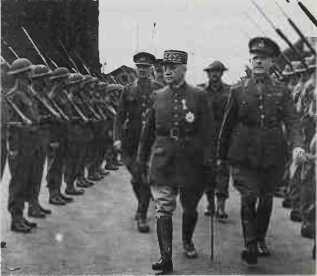Provisional military demarcation line, not a political or territorial boundary, and scheduled elections on reunification for July 1956. None of the nine countries attending the conference signed the Final Declaration, and only four (France, Great Britain, the Soviet Union and China) gave it their unqualified endorsement. The Saigon government denounced it, and the US promised only to refrain from the threat or use of force to disturb it.
Whether the Geneva Agreements bound all parties to a new status quo was subsequently a matter of controversy. Saigon and the US argued that communist violations relieved the South of obligation to discuss the elections on reunification, while the North insisted that the agreements had irrevocably established Vietnam’s juridicial unity. WST.
Geneva Conference on peace settlement in Korea (1954). The armistice which ended the Korean War called for a political conference within three months. The issue, however, was not discussed until the Geneva Conference of
1954. The negotiations bogged down when the US insisted that elections for a reunified Korea must be held only in North Korea, supervised by the un, a position unacceptable to the dprk and China because the un had been a belligerent in the war. The communists demanded elections in both Koreas under an all-Korea electoral commission supervised by the Neutral Nations Supervisory Commission. The deadlock left the political issues of the war unresolved. CM.
Geneva Conventions. From 1864 onward a series of conferences at Geneva attempted to set international standards for the conduct of war. The term “Geneva Conventions” usually refers to that “Relative to the Treatment of Prisoners of War”, promulgated July 27 1929, reaffirmed 1949, which enjoins humane treatment monitored by neutral officials.
Genghis Khan Line. German defensive positions based on the Idice and Reno rivers in Northern Italy, covering Bologna and the Po Valley in 1944-45.
Gentile, Capt Don S (1920-51). US. Volunteered for the raf in 1940 and flew with No. 133 Eagle Squadron before transferring to the usAAF in September 1942. He then served with the US 4th Fighter Group and was ultimately credited with 19.83 aerial victories, over half of them scored in March
1944.
George II, King of the Hellenes
(1890-1947). Reigned 1922-24 and 1935-47. After the defeat of his and the British forces in 1941 he maintained a government in exile, first from London and then Cairo. This was challenged by the communists in the civil war after the German collapse, but he was restored by a plebiscite in 1946.
George VI, King of Great Britain, Ireland and the British Dominions (1895-1952). Reigned 193652. While recognizing that war might become inevitable, he gave every encouragement to Chamberlain in his attempts to avert it. Although initially doubtful about Churchill as PM, he soon established an excellent relationship with him. Throughout the war he worked selflessly and became completely identified in the nation’s mind with the spirit of resistance and the will to victory. ANF.
Georges, Gen Alphonse (1875
1951). Fr. In 1918 Georges served on the Western Front as Marshal Foch’s operations chief and, after the war, was Petain’s Chief of Staff in North Africa during the Riffian wars. In January 1940 Georges was made commander of the North East Front, facing the brunt of the German attack in May. The sheer speed and power of the advance overwhelmed Georges’ forces and after only nine days he was re-
Georges: broke with Petain after 1940

Lieved of his command. He refrained from close association with the Vichy regime and in 1943 joined the Free French forces in North Africa, becoming a member of the French Committee of National Liberation. MS.
Georgia, South, Argentine invasion of (1982). In March 1982, a party of Argentine scrap metal dealers, having landed without permission, hoisted their national flag at Leith Harbour on South Georgia, a dependency of the Falk-lands some 800 miles (1,290km) to the southeast of Port Stanley. Governor Rex Hunt dispatched a party of Royal Marines aboard hms Endurance to investigate and to safeguard the interests of the British Antarctic Survey base. On April 3, the Argentinians invaded South Georgia; the Marines detachment surrendered on Hunt’s orders after inflicting casualties on the invaders, but HMS Endurance evaded the Argentine force and escaped. On April 23, South Georgia was retaken after preliminary forays by the SAS and Special Boat Squadron and an attack by helicopters on the submarine Santa Fe, which was damaged by missiles. MH.
German Southwest Africa campaign (August 1914-July 1915). In August 1914, the 318,000-sq mile (824,000-sq km) territory of Southwest Africa (Namibia), a German colony since 1892, with Atlantic ports at Swakopmund, Liideritz and Walvis Bay (a British enclave occupied by German forces) and rail links from the coast to the borders, offered potential for a German invasion of British Bechuanaland and Southern Rhodesia, assisted by an antiBritish rising in South Africa. However, the Caprivi Zipfel (Cap-rivi Strip), the northeastern invasion corridor, was swiftly secured by Rhodesian forces; Swakopmund was neutralized by British naval bombardment; and South African troops landed at Liideritz and simultaneously secured the Orange river crossings from Cape Province, on the southern border, in mid-September 1914.




 World History
World History









